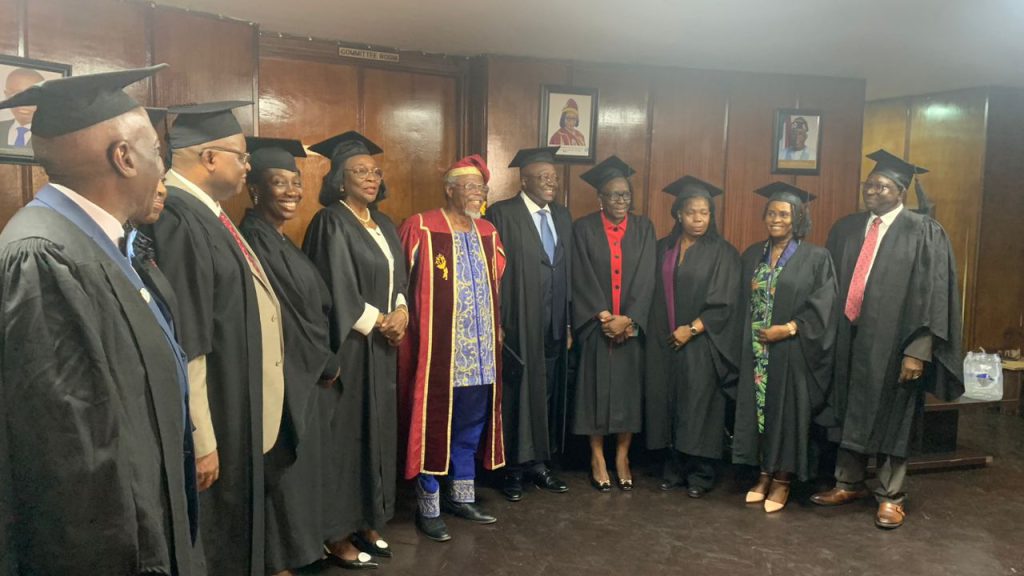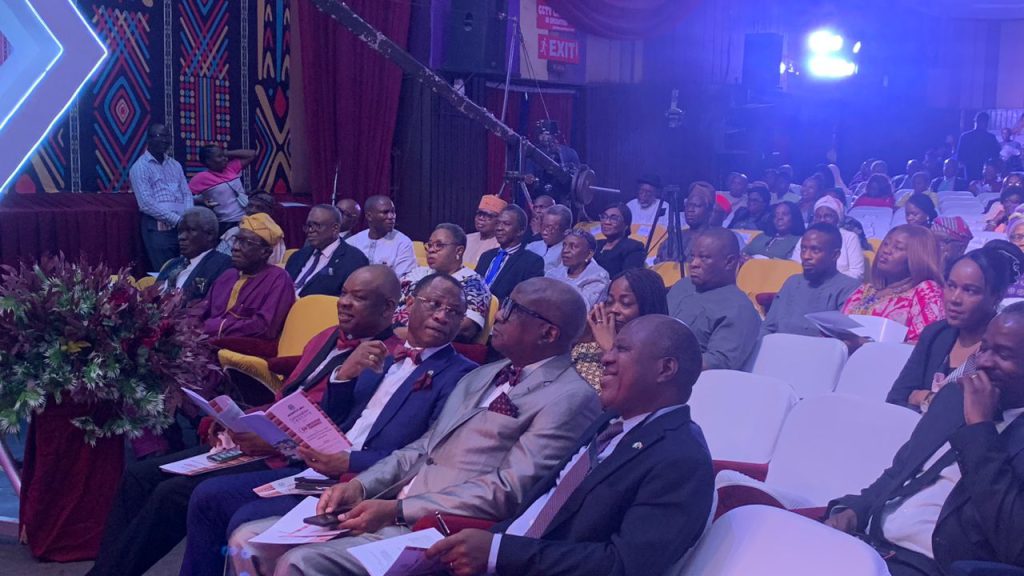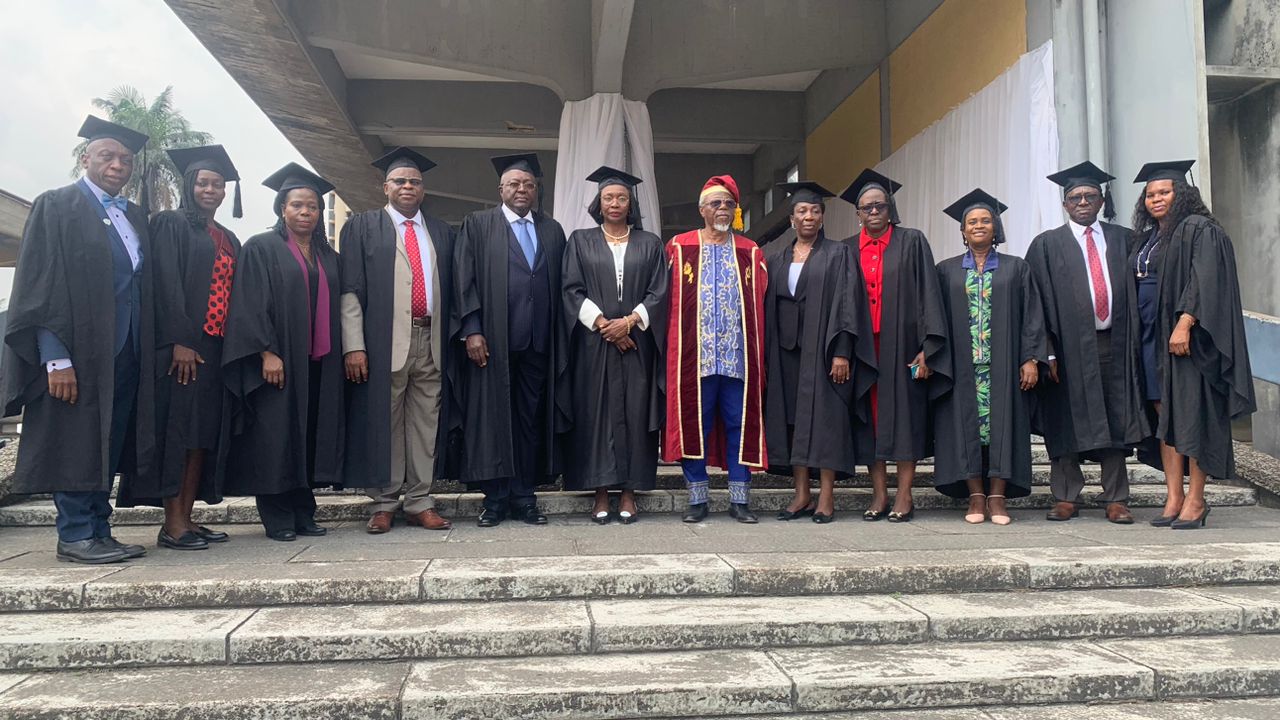BY Toyin Falola
To have the opportunity to address the University of Lagos on January 10, 2024, is a revered honour. However, what is more important is the necessity of the topic and the influence of the same on the epistemological and structural makeup of African society.
Education and knowledge are the fundamental pillars of every society, and it is quite inconceivable to see a nation or society whose progression transcends the proportionality of its epistemological framework. The knowledge emitted into every society becomes the enabler of projections and trajectories. The essence of this assertion is that education nurtures the human mind and consciousness, and one would agree that abilities and inabilities to conceive change and the will to execute the same are heralded by the mind. Hence, to ensure desired development, the mind that serves as a conduit of change must be positively controlled, and education, being the fountain of the strength of the mind, must be given preference in the scale of action plans.
While the foundational educational systems are pivotal in the ideological formation of every individual, Higher Institutions education serves as the cultivator of the will and capacitation of developmental ideas. The needed presuppositions and necessities to achieve them are exuded from the philosophical compounding by the Higher Institutions. They are the conduits of clarity and strategic captivation of notions of change and development. Unfortunately, the brass tacks of these institutions have been infested by colonial ideological conditionings that subject the radiating trajectories, curriculum, methodologies, and products of the African Higher institutions to myopic vantages that tend to only draw from or imply from colonial systems.
Colonial influence on the African Higher Education system cannot be overemphasized. It has been the elephant in the room where academic discourses are done and one of the major limitations to the developmental possibilities of the continent. While we develop, we tend to develop away from the peculiarities of the African culture and society and, as such, gravitate towards counter-productivity and dredging in the captivity of developments that lack sustainability.

As a result of the fact that the History of the Higher Educational System of Africa relies on the history of colonialism, the colonial system dictated the educational system, even after colonialism. The initial concept of the early institutions was not to see African ideological development but to create a reservoir of resources for the alignment of colonial aspirations with the colonies. Hence, the educational system was toned to Eurocentric foregrounding and, as such, has a scant possibility of reflection on the cultural peculiarities and societal distinctions as needed for sustainable growth. As these systems of government evidently influence the thinking process of the nations, they gradually but continuously rob the African nations of their respective cultural identities.

To ensure the germination of colonial epistemology in the institutions, African epistemologies were consigned to the back seat and were gradually reeled off the minds of Africans. African cultural heritages were gradually taught to be thought of as barbaric, with their potential ignorantly ignored. Hence, the curricula of the universities at that time and the ones that were established after independence were tailored to reflect Eurocentric realities at the expense of African knowledge and realities. For instance, the predominance of the English language as the language of instruction in creativity and conceptual understanding perpetually limits the possible propensities of the African language and African lenses of conceptual understanding. This has blocked the possibilities of expansion of the African languages to adequately address complex and sophisticated concepts as well as technical frameworks. Hence, the idea of scholarship has been that of subjections to ideological and methodological purviews of Eurocentric ideations.
The African cerebral and persons of influence have not been quiet about the decolonization of the Higher Institutions ever since the inception of independence. They had understood the negative implication of colonization of the African minds through higher institutions that should have been frontiers of liberation. The concepts of Afrikology, Pan-Africanism, and Afrocentricism were some of the theoretical and conceptual approaches to these decolonization efforts. African Universities have been on the mission of incorporating African cultures and concepts into the educational systems. There are Universities within and outside Africa that have created departments and study centers for the proliferation of African epistemologies and the understandings thereof. Many of the curricula of African Universities have also been adjusted to reflect Africanism, literature, and African language but mostly at a periphery level.
It is not the case that the African history and societies do not have epistemological and structural properties worthy and strong enough to help navigate the course of societal needs and realities; it is just that the received vantage points from the psychological captivation of Africa in colonialism created an aura of insufficiency and mere mellifluous superstitions around them. The early archaeological discoveries have revealed the African civilizational progressions across the terrains of the continent. Architecture, trades, structures, science, medicines, human scientific disciplines, government, and other ramifications were advanced at proportional levels in respective locations but fitting into the level of knowledge of their time. Some of these civilizations matched those of some European countries at the time. Egypt, Ethiopia, Mali, the Nok, and many other civilizations scattered across Africa were evidence of the nullification of the assumption of barbarism. To achieve cultural identity as well as a particularization of African development to attain sustainable attributes, confidence in African epistemological materials must be built and shown in the operations of African Higher Institutions. Hence, the whole of the Higher Institutions’ educational, pedagogical and research system must be built to be conscious of African cultural peculiarity as a way of displacing colonialism. This goes into the domestication of seemingly complex concepts, research, and scholarship so as to achieve a real African angle to them.
Transformational development is a perceptional endeavour, and perceptions are constructed by the information provided to it, the Higher Institutions being the primary conduit of this information. Where a colonized conduit of information that propels transformational development is apparent, such developments would seldom be sustainable and rarely be appropriate for the realities of the respective societies. This goes to the root of every endeavour; it shapes political, social, economic, scientific, and philosophical approaches to every phenomenon. It would be like the enactment of a society quite different from the people that make it up. So, if the ideologies that we are what we perceive are true, the transformation might not be the true reflection of the people and bear the potential of running against the people.
The efforts to decolonize Nigerian Higher Education are primarily that of the University but largely cede to the roles of the government and its agencies. Where the Institutions resolve to take decolonizing steps, and the government or its agencies are insistent on a methodology, there could be counter-productivity. The Nigerian Universities Commission (NUC) and other relevant bodies regulating other levels and classes of higher institutions have shown to have an overbearing influence on the operations of the Higher Institutions in Nigeria. Similar situations are evident in other parts of the continent; they cut through classes of higher institutions as well as influence their respective curriculum. For instance, the implementation of Benchmark Minimum Academic Standards (BMAS) by the NUC is one way the commission regulates the frameworks of the University systems, ensuring that they comply with a standard of criteria and curriculum before accreditation. This was also followed in 2022 by the Core Curriculum Minimum Academic Standards (CCMAS), which attempts to introduce contemporariness in the University system, giving only 30% curriculum freedom to the Universities. This could either be a limitation or an enabler to the attempts of the institutions at the decolonization process of educational systems. The NUC could inculcate more Afrocentric themes and structures to retain and regain African cultural identities.
On the part of universities, and particularly the University of Lagos, there needs to be intentional reformation and revolution of the teaching strategies and curriculum for a balanced reflection of African values and ideals. One such is the expansion of general courses and Programs on cultural properties, African epistemologies, and ingenuities. These expansions would lead the norms of educational systems to track back to the African logic and knowledge system in a holistic manner and borrow the wisdom of the past to resolve contemporary problems. This also snowballs into the encouragement of socio-cultural initiatives for real and local perspectives on issues and exposure of students to cultural materials.
There is also a need for the proliferation of African languages in academic courses and programs. The norms have been to establish a language course and teach more about the language. However, there has not been adequate tolerance of the language in disciplines and departments. The relevance of the use of these languages is not just to teach the linguistic properties but to see how they could be engaged in what could be regarded as complex subjects. The adoption of Swahili or Yoruba in the teaching of chemistry, engineering, biology, and other related endeavours would be a testimony to readiness for the real adoption of the languages. The languages need to be objects of research as well as the language of research. The efforts must also be extended to the proliferation of African concepts and scholarship to engage further and reflect more, African epistemology. To this end, the University of Lagos may take the initiative of awarding Combined Honors in African Culture, Science, Language, and Economies for disciplines that have been interwoven and targeted at demystification of African epistemologies and philosophies as pertaining to a particular discipline or ramification.
Aside from the compulsory influence of the government and its agencies, for the University of Lagos to achieve real independence and have the desired resources to achieve decolonization, it must be able to sustain itself financially and build innovative systems that would draw more relevance in its adjoining societies. The University of Lagos is located in the largest coastal city with maritime activities at one of its peaks. In this light, the University could embark on the creation of creative economies that would focus on the “blue economy” and other creative endeavours. This extends to the creation of a Lagoon and Sea Economy Department to explore fully, the potential of the city of Lagos.
Even if efforts towards decolonization are successfully achieved, other factors would be relevant in the attempts towards achieving transformational development. The spirit-lifting of the members of staff and giving of right remuneration is proportional to the expectation of their productivity. The University of Lagos is located in Lagos, particularly in Akoka, Yaba, where the cost of living is quite excessive and expensive. Lagos has the highest cost of living in Africa. The cost of accommodation, transportation, and feeding cannot be compared with other states. Hence, it would be unreasonable to put the University teaching and non-teaching staff under the same CONUASS and CONTISS scales without taking into cognizance the peculiarity of Lagos. The Cost of Living Allowance that is supposed to reflect these locational peculiarities has not been able to appropriately remedy the problem. Aside from reviewing the Cost of Living Allowance appropriately, the government could adopt a Band system that classifies states into bands of their cost of living and adjusts the remunerations based on these bands.
PS: This is Part 4 of the series on the University of Lagos.


